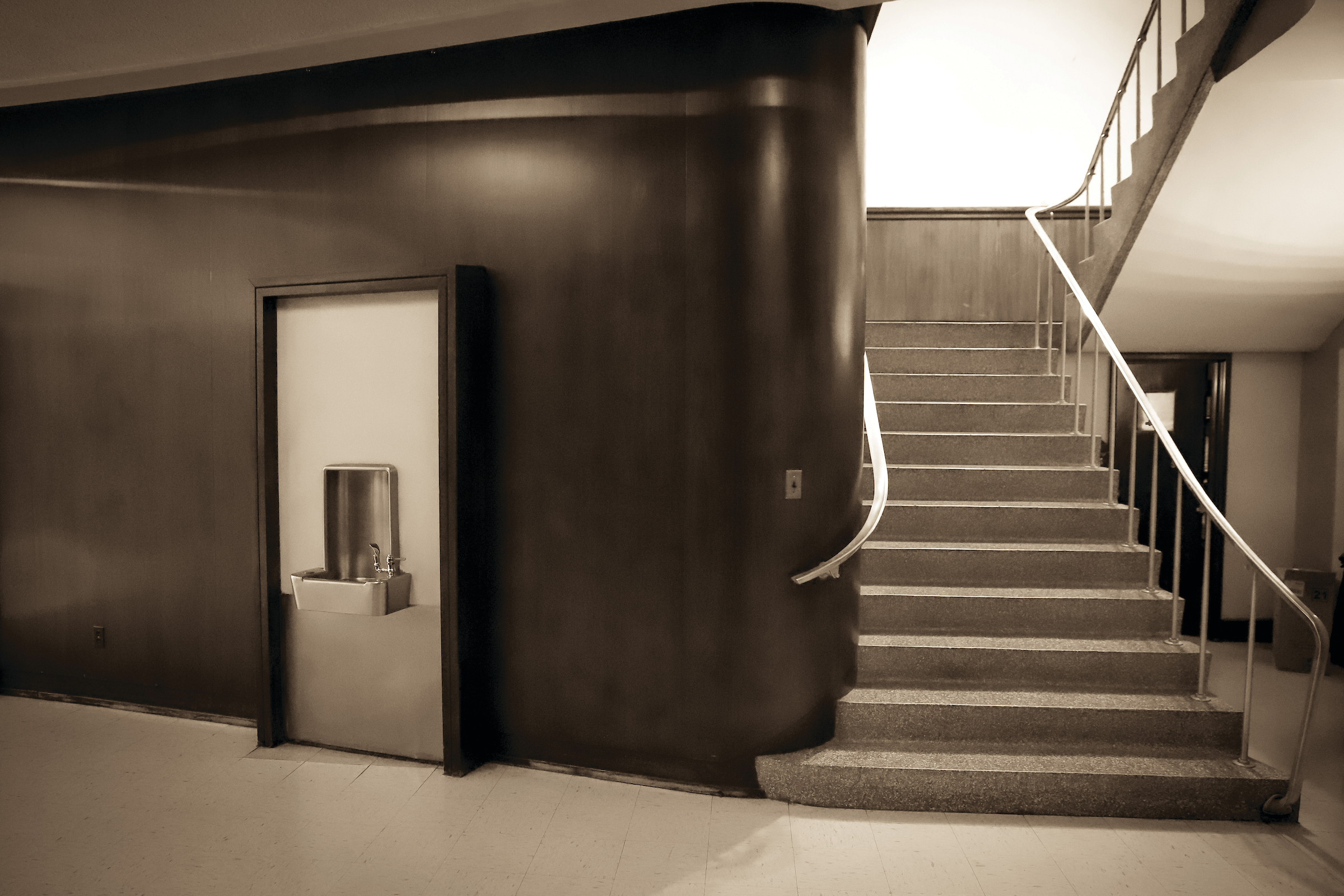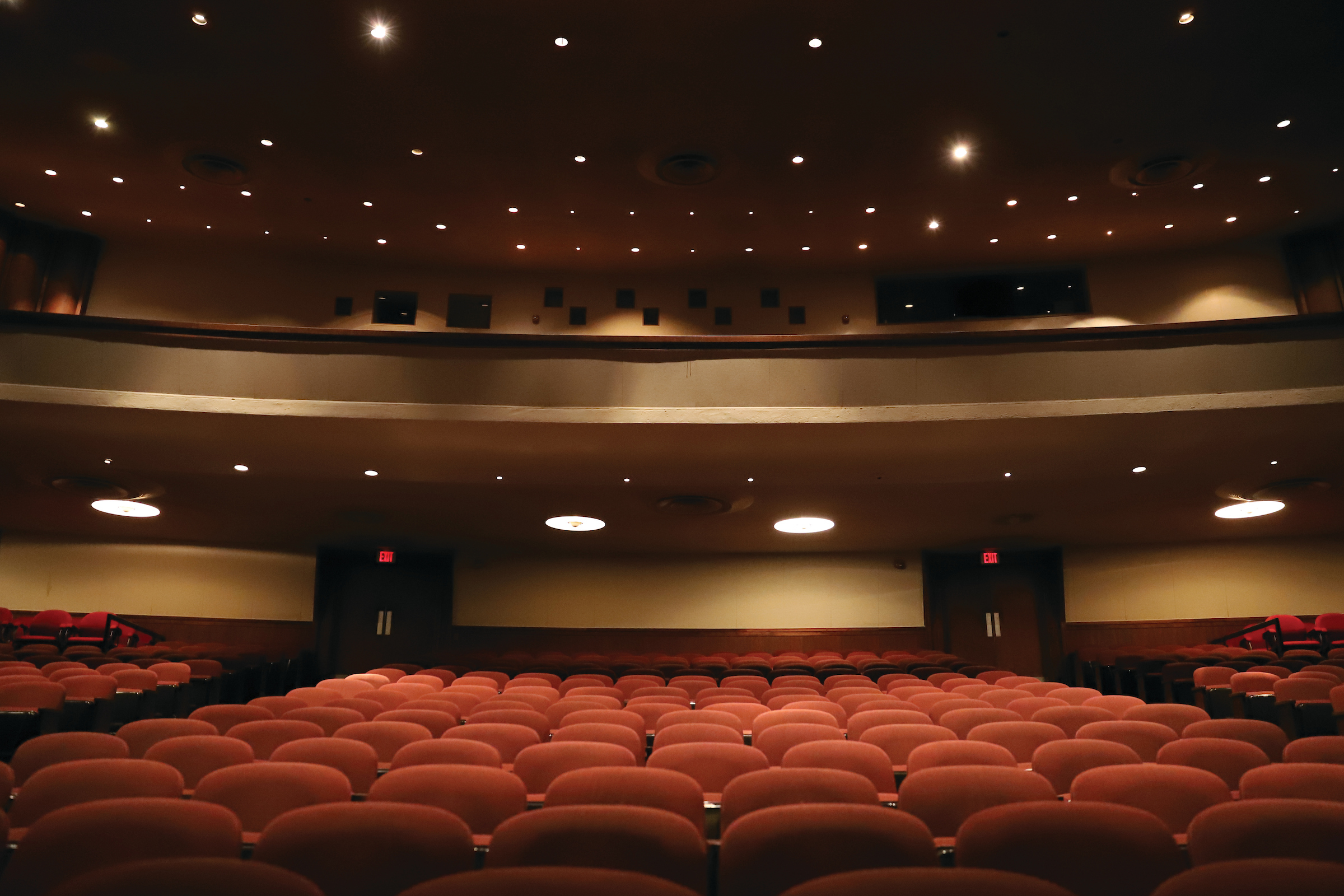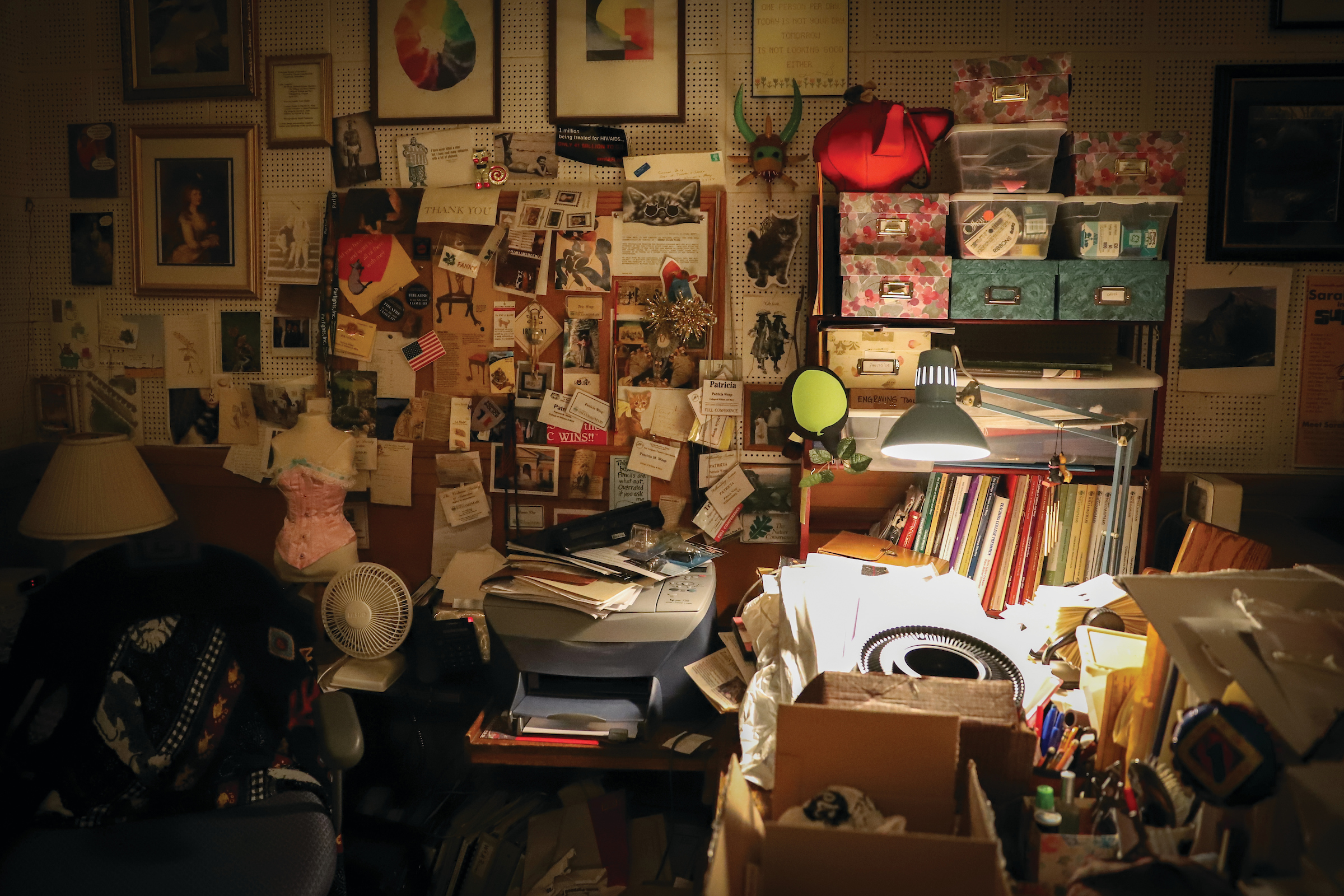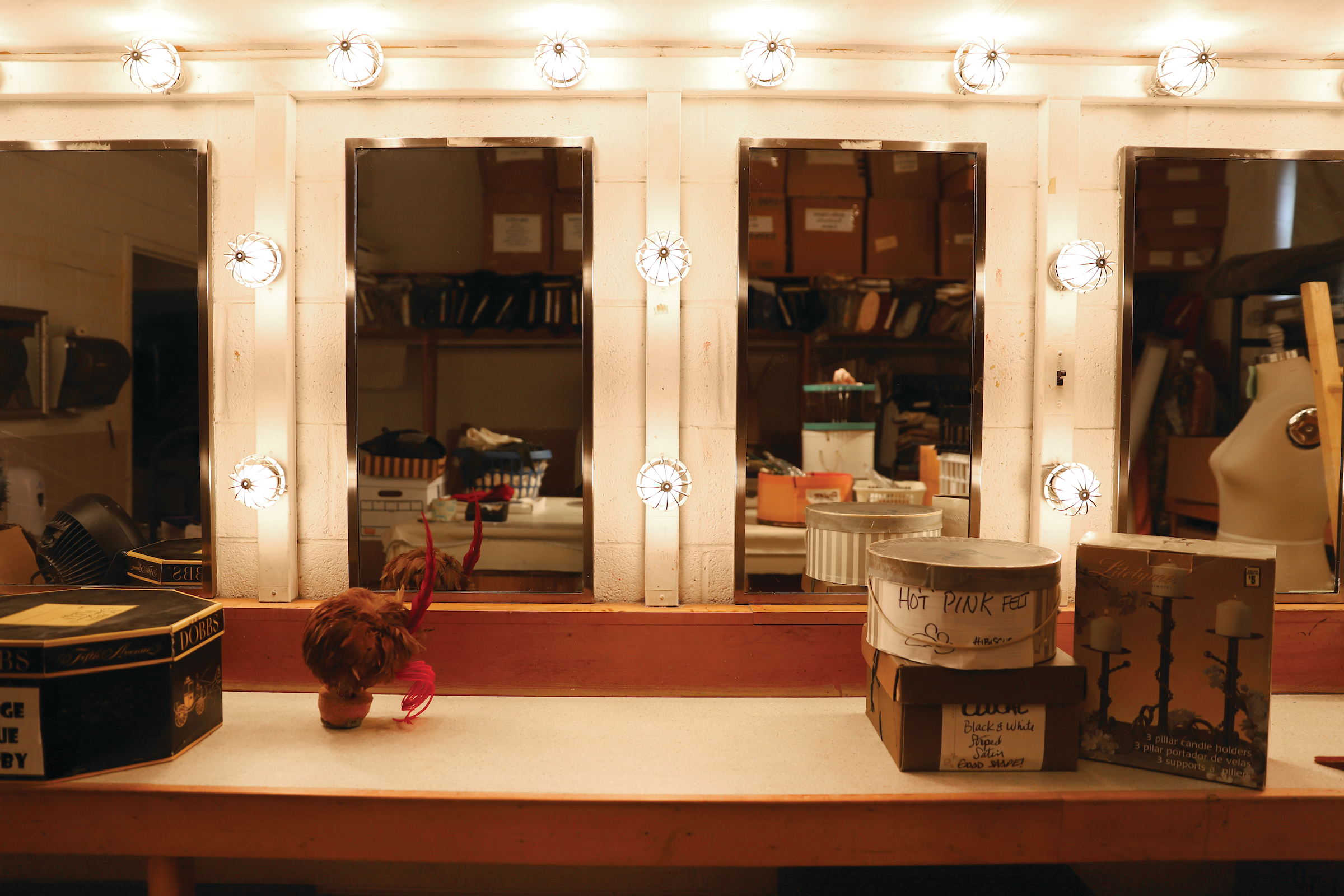Phi Beta Kappa Memorial Hall (PBK) is transforming. Much like a character in “Metamorphoses,” one of the last productions to be staged there, PBK is shedding the old and becoming something new. The building, which first opened in 1957, will be closed until the fall of 2020 as the entire Arts Quarter of campus undergoes an extensive renovation and expansion.
Generations of students and faculty alike have come alive in this space, which currently houses an auditorium, studio theatre, and the theatre, speech and dance departments. The facility has served as a springboard for the careers of actresses Glenn Close ’74, D.A. ’89 and Linda Lavin ’59, actor Scott Glenn ’61, television producer Bill Lawrence ’90 and Broadway costume designer William Ivey Long ’69, L.H.D. ’04.
When it was built in 1956, PBK was one of the best university theatre facilities on the East Coast, boasting a custom lighting system, an electronic dimming system and a flexible black box theatre space that allowed students and faculty to explore alternative performance styles. The facility played host to performances by multiple student groups, including the Sinfonicron Light Opera Company. The William & Mary radio station, WCWM, also operated out of the building from 1959 until 1986, when it was moved to the Campus Center.



